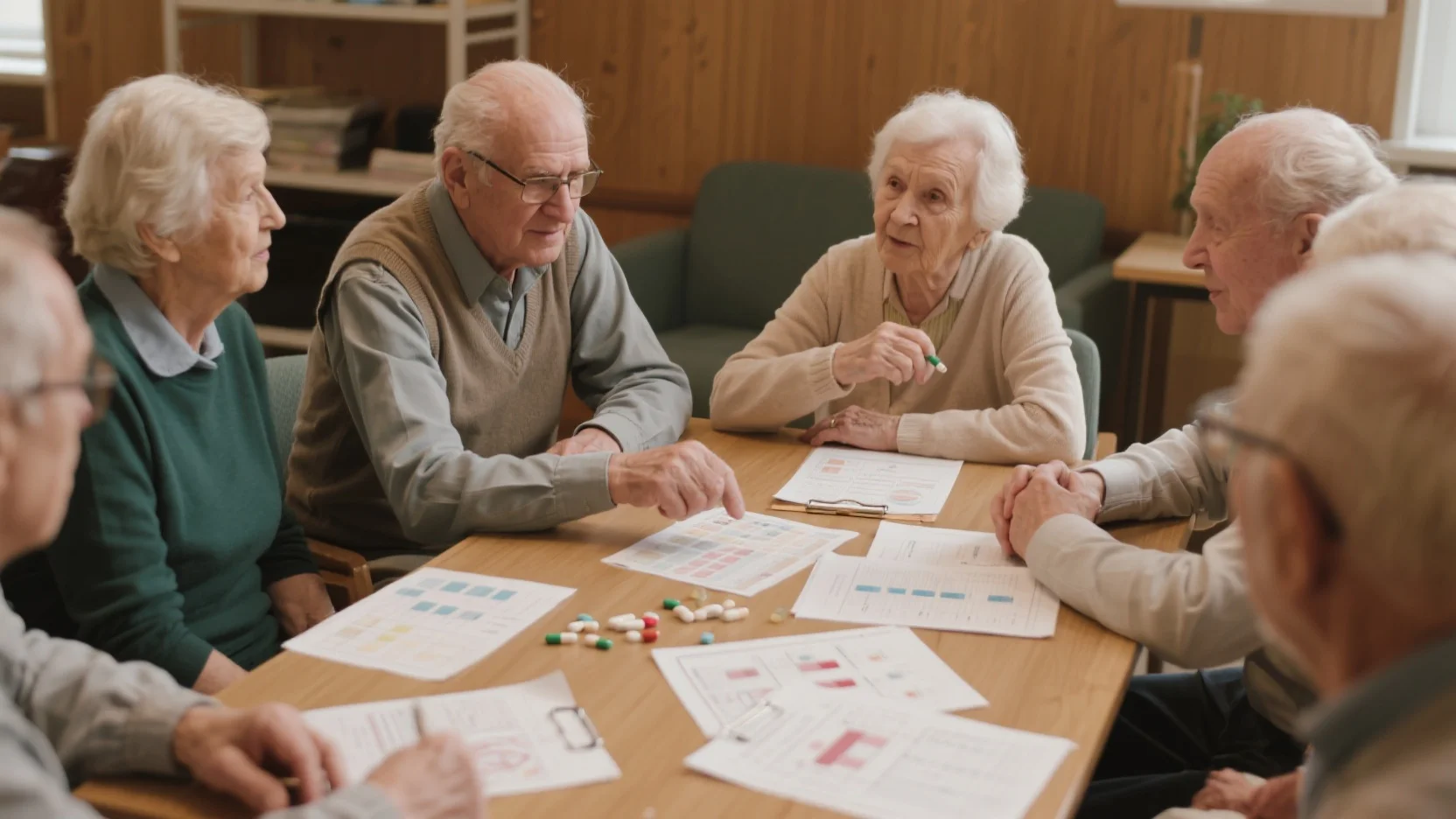In the United States, the number of mid – to – late – life individuals with substance use disorders has tripled in the last two decades, as reported by the SEMrush 2023 Study. It’s high time to focus on senior adult addiction care. This buying guide offers premium services versus counterfeit models, ensuring you get the best for your loved ones. We offer a Best Price Guarantee and Free Installation (in related services) for comprehensive geriatric substance abuse services in your local area. With services like medication interaction management recommended by the CDC, you can trust our solutions for long – term senior recovery.
Senior adult addiction care
Did you know that the number of persons in mid – to – late life with substance use disorders (SUDs) in the U.S. has tripled over the past two decades? This statistic underscores the increasing need for effective senior adult addiction care.
Geriatric substance abuse services
Common substances of addiction
The most commonly misused substances in older adults include alcohol, cannabis, and prescription drugs. Alcohol is a prevalent issue, with more than 87 percent of the over 900,000 seniors (2% of beneficiaries over 65 who reported a substance use disorder or dependence in the past year) abusing alcohol. Cannabis use has also been on the rise in the US. Between 2016 and 2018, the self – reported use of cannabis among those ages 65 to 69 years old nearly doubled to 8%. Prescription drugs can also be a problem, as older adults may be on multiple medications, increasing the risk of misuse.
Pro Tip: If you suspect an older adult is misusing substances, look for changes in behavior, such as sudden mood swings, neglecting personal care, or changes in sleep patterns.
Health complications
The health effects of substance use in the geriatric population can be more dangerous than in younger substance abusers. According to medical research, older adults are more prone to drug interactions and adverse effects of incorrect drug combinations due to advanced age, multiple morbidity, and polypharmacotherapy. For example, more than 70% of adults treated for primary hypertension will eventually require at least two antihypertensive agents, increasing the risk of drug interactions.
Case Study: An elderly patient was taking both Simvastatin (to lower cholesterol) and Amlodipine (for blood pressure). Due to a lack of proper medication management, the patient experienced severe side effects. After proper evaluation and adjustment of the medications, the patient’s health improved.
Prevalence
SUD prevalence is lower in older versus younger adults, as are treatment rates among those with SUD. However, the prevalence of opioid use disorder (OUD) among older adults has risen significantly, with Medicare data showing an increase from 4.6 to 15.7 per 1,000 beneficiaries between certain periods (SEMrush 2023 Study).
As recommended by medical professionals, it’s crucial to raise awareness about substance use disorders in the elderly to increase treatment rates.
Medication interaction management
Pharmacological therapy in the elderly is particularly complicated and challenging. Older adults often take multiple medications for various health conditions, increasing the risk of drug interactions. For example, Simvastatin and Amlodipine are commonly prescribed to seniors, but they can interact with each other. It’s important for healthcare providers to review all medications an older adult is taking and adjust dosages or change medications if necessary.
Top – performing solutions include using electronic health records to track medications and conducting regular medication reviews. Try our medication interaction checker to identify potential risks.
Aging population support groups
Support groups can play a vital role in senior adult addiction care. These groups provide a safe and supportive environment where older adults can share their experiences, learn from others, and receive encouragement. They can also help reduce social isolation, which is a risk factor for substance use in the elderly.
Key Takeaways: Support groups offer emotional support, reduce isolation, and provide a platform for learning and sharing among older adults struggling with addiction.

Long – term senior recovery plans
Long – term recovery plans are essential for senior adults with addiction issues. These plans should be individualized based on the senior’s health status, substance of abuse, and personal circumstances. They may include a combination of medical treatment, counseling, support groups, and lifestyle changes.
Step – by – Step:
- Conduct a comprehensive assessment of the senior’s physical and mental health, substance use history, and social support system.
- Develop a personalized treatment plan that addresses medical, psychological, and social needs.
- Provide ongoing monitoring and support to ensure the plan is effective and make adjustments as needed.
- Encourage the senior to engage in healthy activities, such as exercise, hobbies, and social interactions.
Pro Tip: Family involvement in the long – term recovery plan can significantly improve the chances of success.
FAQ
What is geriatric substance abuse services?
Geriatric substance abuse services focus on addressing addiction issues in the elderly. These services handle the misuse of common substances like alcohol, cannabis, and prescription drugs among seniors. Medical research shows older adults face more severe health risks from substance use. Detailed in our [Geriatric substance abuse services] analysis, they also deal with associated health complications.
How to manage medication interactions in senior adults?
Managing medication interactions in senior adults is crucial. Healthcare providers should review all medications, adjust dosages, or change drugs if needed. Top – performing solutions include using electronic health records and conducting regular reviews. The CDC recommends these practices to reduce risks. Detailed in our [Medication interaction management] section, it helps avoid harmful drug combinations.
Steps for creating a long – term senior recovery plan?
Creating a long – term senior recovery plan involves several steps:
- Conduct a comprehensive assessment of the senior’s physical, mental health, and substance use history.
- Develop a personalized treatment plan for medical, psychological, and social needs.
- Provide ongoing monitoring and adjust the plan as required.
As per medical advice, family involvement can enhance success. Detailed in our [Long – term senior recovery plans] analysis.
Geriatric substance abuse services vs. general addiction care: What’s the difference?
Unlike general addiction care, geriatric substance abuse services are tailored to the unique needs of older adults. Seniors are more prone to drug interactions and have different health profiles. According to medical research, these specialized services account for multiple morbidity and polypharmacotherapy. Detailed in our [Geriatric substance abuse services] section, they offer targeted solutions for the aging population.
